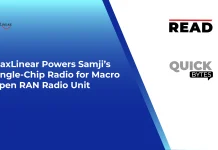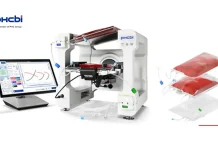Moleculin Biotech, Inc., a clinical stage pharmaceutical company with a broad portfolio of drug candidates targeting highly resistant tumors and viruses, announced that the U.S. Food and Drug Administration (“FDA”) has granted Orphan Drug Designation of WP1122 for the treatment of Glioblastoma Multiforme (“GBM”).
“The receipt of Orphan Drug Designation represents an important milestone for our promising WP1122 development program,” commented Walter Klemp, Chairman and Chief Executive Officer of Moleculin. “Given the progress of our Phase 1 clinical trial in healthy volunteers, the strong preclinical data supporting GBM as one of many potential indications and the recent clearance by the FDA of IND status for WP1122 in GBM, we believe this designation further supports the potential of WP1122 and is another step forward in further validating our deep pipeline.”
Also Read: LASEROPTEK Co., Ltd.’s HELIOS IV-785 Combination Picosecond 785nm
WP1122 was developed as a 2-DG prodrug to provide a more favorable pharmacological profile and was found to have greater potency than 2-DG alone in preclinical models where tumor cells require higher glycolytic activity than normal cells. Based on preclinical data indicating the potential for WP1122 as a treatment for GBM, Moleculin received Investigational New Drug status and is evaluating opportunities for collaboration in clinical development.
GBM is the most aggressive malignant primary brain tumor and remains as an incurable tumor with a median survival of only 15 months.1 It is the most common malignant primary brain tumor making up 54% of all gliomas and 16% of all primary brain tumors,2 and despite advancements, survival rates for patients with GBM have shown no notable improvement in population statistics in the last three decades.3 The average annual age-adjusted incidence rate of GBM is 3.19 per 100,000 persons in the United States.
The FDA grants Orphan Drug Designation to drugs and biologics intended for the treatment, diagnosis or prevention of rare diseases or conditions affecting fewer than 200,000 people in the United States. Orphan Drug Designation provides Moleculin certain benefits, including financial incentives to support clinical development and the potential for up to seven years of market exclusivity for the drug for the designated orphan indication in the U.S. if the drug is ultimately approved for its designated indication.






